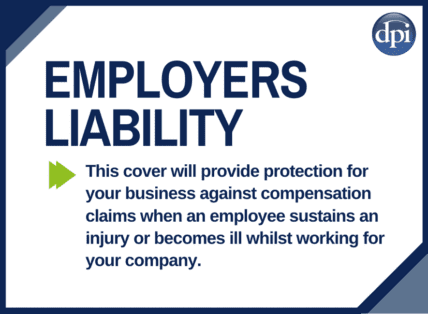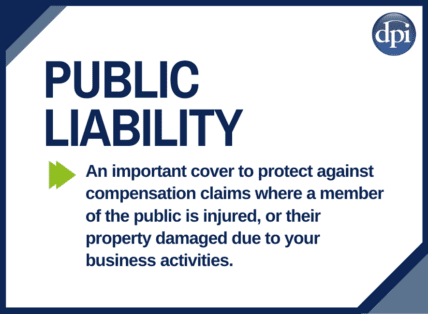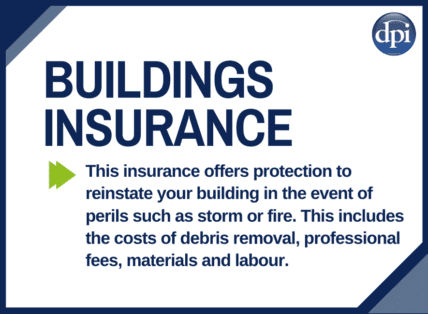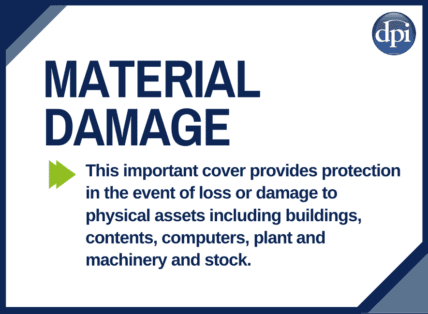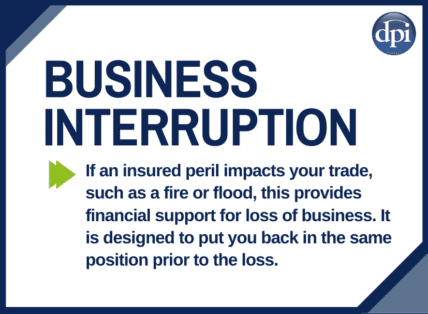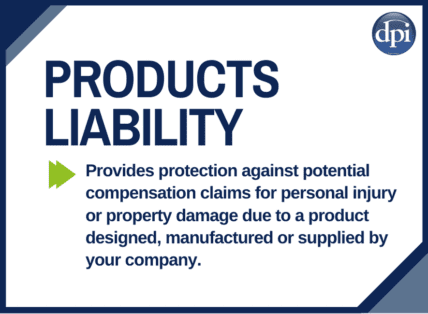How to Avoid Underinsurance
Discover how to prevent underinsurance in your business. Avoid financial losses by regularly reviewing policies, working with an experienced broker and accurately assessing risks.

| Key Takeaways | Reasoning |
| Underinsurance can lead to significant financial losses for businesses. | Underinsurance occurs when a business's insurance coverage is insufficient to fully compensate for losses in the event of a claim, leaving businesses vulnerable to financial burdens. |
| Regularly review your insurance policies to ensure adequate coverage. | Conducting regular reviews of insurance policies helps ensure coverage remains aligned with current business needs and identifies any gaps or deficiencies that need to be addressed. |
| Work with an experienced insurance broker who understands your industry. | Partnering with a reputable insurance broker who specialises in your industry ensures you receive tailored insurance solutions and expert guidance on coverage options. |
| Consider all potential risks and liabilities when determining coverage needs. | Conduct a comprehensive risk assessment to identify all potential threats to your business, including property damage, liability claims, and business interruption, to ensure adequate coverage. |
| Don't underestimate the value of your assets or the potential costs of a claim. | Thoroughly evaluate the value of your assets to determine appropriate coverage limits and avoid underestimating the financial impact of a claim. |
In the dynamic landscape of business operations, risks are inevitable. From natural disasters to legal liabilities, entrepreneurs face a myriad of challenges that could potentially disrupt their operations and lead to financial losses. While insurance serves as a safety net against such uncertainties, underinsurance remains a prevalent issue that can leave businesses vulnerable to substantial financial burdens. In this article, we’ll explore what underinsurance entails and provide actionable tips on how to avoid it.
What is Underinsurance?
Underinsurance occurs when a business’s insurance coverage is insufficient to fully compensate for the losses incurred in the event of a claim. This shortfall can have devastating consequences, leaving businesses struggling to recover from unexpected setbacks. Common causes of underinsurance include:
- Inadequate Assessment: Failing to accurately assess the value of assets and liabilities can result in underestimating insurance needs.
- Changes in Business Operations: As businesses evolve and expand, their insurance requirements may change. Failure to update policies accordingly can lead to gaps in coverage.
- Cost-cutting Measures: Opting for lower premiums by reducing coverage limits or excluding certain risks may seem financially prudent in the short term but can expose businesses to greater risks in the long run.
- Misinterpretation of Policy Wording: Complex insurance policies with ambiguous wording can lead to misunderstandings regarding the extent of coverage provided.
Tips to Avoid Underinsurance
1. Regular Policy Review
Action: Conduct regular reviews of your insurance policies, preferably annually or whenever significant changes occur within your business.
Benefits:
- Ensures your coverage remains aligned with your current needs and business operations.
- Identifies any gaps or deficiencies in coverage that need to be addressed promptly.
2. Work with an Experienced Insurance Broker
Action: Partner with a reputable insurance broker who specialises in your industry and has a thorough understanding of your unique risks and insurance requirements.
Benefits:
- Leverages the expertise of professionals who can provide tailored insurance solutions tailored to your specific needs.
- Helps navigate complex insurance policies and ensures you receive comprehensive coverage without unnecessary overlaps or exclusions.
3. Assess All Risks and Liabilities
Action: Conduct a comprehensive risk assessment to identify all potential threats to your business, including property damage, liability claims, and business interruption.
Benefits:
- Allows you to prioritise risks and allocate resources accordingly to mitigate potential losses.
- Ensures you obtain adequate coverage for all foreseeable risks, reducing the likelihood of underinsurance.
4. Accurate Valuation of Assets
Action: Thoroughly evaluate the value of your assets, including property, equipment, inventory, and intellectual property to determine the appropriate coverage limits.
Benefits:
- Prevents undervaluation of assets, ensuring sufficient coverage to replace or repair damaged or lost property.
- Minimises the risk of underestimating the financial impact of a claim, thereby avoiding potential out-of-pocket expenses.
5. Keep Detailed Records
Action: Maintain accurate records of your assets, inventory, and financial data, updating them regularly to reflect any changes or acquisitions.
Benefits:
- Facilitates an accurate assessment of your insurance needs based on up-to-date information.
- Streamlines the claims process by providing documented evidence of assets and losses, expediting the settlement process.
6. Seek Professional Advice
Action: Consult with insurance professionals or risk management experts if you’re uncertain about your insurance needs or coverage options.
Benefits:
- Provides access to expert guidance and insights into industry-specific risks and regulatory requirements.
- Helps you make informed decisions regarding insurance coverage and risk management strategies, reducing the likelihood of underinsurance.
Conclusion
Underinsurance poses a significant threat to businesses, potentially jeopardising their financial stability and long-term viability. By taking proactive measures to assess risks, review insurance policies regularly, and work with experienced insurance professionals, businesses can mitigate the risk of underinsurance and ensure they have adequate protection against unforeseen events. Remember, investing in comprehensive insurance coverage is not just a financial decision; it’s a crucial safeguard against the uncertainties of business operations.
FAQs
What are the consequences of underinsurance?
Underinsurance can result in financial losses that may exceed the coverage provided by insurance policies, leaving businesses responsible for covering the shortfall. This can lead to cash flow problems or even worse closure of the business.
How often should I review my insurance policies?
It’s recommended to review your insurance policies annually or whenever significant changes occur within your business, such as expansions, acquisitions, or changes in operations.
How can I accurately assess the value of my assets?
Consulting with an experienced broker to understand the basis of cover and involving appraisers, accountants, or industry experts can help you accurately assess the value of your assets. Additionally, maintaining detailed records of your assets and updating them regularly can ensure accurate valuation.
What should I do if I suspect underinsurance?
If you suspect that your business may be underinsured, it’s essential to consult with an experienced insurance broker or risk management professional to conduct a thorough review of your insurance policies and identify any gaps or deficiencies in coverage. Taking prompt action to address underinsurance can help mitigate potential risks and protect your business from financial losses.
Related Products & Services
Property Insurance
Property investments are significant assets that require comprehensive protection. With our Property Insurance solutions, we safeguard your valuable real estate investments, providing coverage for a variety of scenarios, including fire damage, natural disasters, and more.
Marine Cargo
Transporting goods across seas can be a complex endeavor with inherent risks. Our Marine Cargo Insurance ensures that your shipments are protected from potential losses due to accidents, theft, and other unforeseen events, allowing you to conduct your business with peace of mind.
Commercial Combined
Our Commercial Combined Insurance takes a holistic approach to accommodate businesses with a broad spectrum of needs. It consolidates multiple types of coverage into a single policy, streamlining and simplifying your insurance requirements and providing ultimate peace of mind.
Fleet Insurance
Businesses with vehicle fleets understand the importance of keeping their operations on the road. Our Fleet Insurance covers your entire fleet, providing protection against accidents, theft, and other potential disruptions, allowing you to maintain seamless operations.
Cyber Insurance
In an age where cyber threats are ever-evolving, our Cyber Insurance solutions are a business essential. This policy protects your business against data breaches, cyberattacks, and other digital threats, ensuring that your sensitive information and operations remain secure.
Management Liability
In today’s complex business landscape, management-related risks are a real concern. Our Management Liability Insurance covers the legal and financial risks associated with your management decisions, protecting your business and its senior staff members from potential liability.








